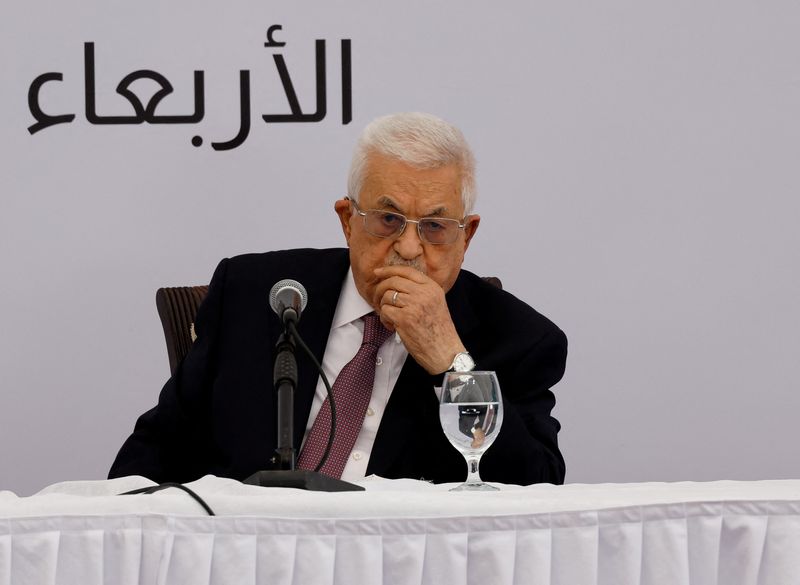August 31, 2025 – The United States has sparked international controversy by barring Palestinian Authority President Mahmoud Abbas and approximately 80 other Palestinian officials from attending the United Nations General Assembly in New York next month, where several U.S. allies plan to formally recognize Palestine as a state. The decision, announced on August 29, 2025, has drawn sharp criticism for violating international agreements and escalating tensions amid growing support for Palestinian statehood. Here’s a detailed look at the situation and its implications.
The Visa Ban and Its Context
The U.S. State Department, under Secretary of State Marco Rubio, revoked visas for Abbas and members of the Palestine Liberation Organization (PLO) and the West Bank-based Palestinian Authority (PA), citing national security concerns. The department accused the PA and PLO of failing to “consistently repudiate terrorism,” specifically referencing the October 2023 Hamas attack on Israel that ignited the ongoing Gaza war. The State Department argued that the move holds the PLO and PA “accountable for not complying with their commitments, and for undermining the prospects for peace” by pursuing “unilateral recognition” of a Palestinian state.
Abbas had planned to attend the annual high-level UN General Assembly, set to begin on September 23, 2025, and a summit co-hosted by France and Saudi Arabia focused on a two-state solution. Britain, France, Australia, and Canada have pledged to recognize a Palestinian state at this summit, reflecting frustration with Israel’s actions in Gaza and settlement expansion in the West Bank. The visa ban, however, prevents Abbas and his delegation from participating, potentially stifling Palestinian representation at a critical moment.
International Backlash and Legal Concerns
The Palestinian Authority condemned the decision as a “violation of U.S. commitments” under the 1947 UN Headquarters Agreement, which generally requires the U.S. to allow access for foreign diplomats to UN headquarters in New York. Palestinian ambassador to the UN Riyad Mansour called the move a breach of international law, noting that the State of Palestine, as a UN observer state, has a right to be represented. Abbas’ office expressed “deep regret and astonishment,” urging the U.S. to reverse the decision.
Spain’s Prime Minister Pedro Sanchez labeled the visa ban “unjust,” stating on X, “Palestine has the right to make its voice heard at the United Nations and in all international forums.” Several European foreign ministers, meeting in Copenhagen on August 30, echoed this criticism, with ministers from Iceland, Ireland, Luxembourg, Norway, Slovenia, and Spain condemning Israel’s Gaza offensive and supporting Palestinian statehood. UN spokesperson Stephane Dujarric said the UN would discuss the issue with the State Department, citing the 1988 precedent when the U.S. denied a visa to PLO leader Yasser Arafat, prompting the General Assembly to relocate to Geneva.
U.S. and Israeli Stance
The U.S. justified the visa ban by reiterating longstanding allegations that the PA and PLO have not sufficiently distanced themselves from extremism, particularly regarding Hamas’ actions. The State Department clarified that the Palestinian Authority’s permanent UN mission in New York is exempt from the restrictions, allowing some representation to continue. Israel’s Foreign Minister Gideon Saar welcomed the decision, aligning with the U.S. view that Palestinian statehood should only emerge through direct negotiations, not unilateral recognition. Israeli Prime Minister Benjamin Netanyahu recently called Australia’s statehood pledge “shameful,” reflecting broader U.S.-Israeli frustration with allies’ moves.
Palestinian officials countered that decades of U.S.-mediated talks have failed to end Israel’s occupation or secure an independent state, accusing the U.S. of undermining their cause. In June 2025, Abbas wrote to French President Emmanuel Macron, condemning the Hamas attack and calling for the release of hostages, a move the State Department acknowledged but deemed insufficient to alter their stance.
Broader Implications
The visa ban comes amid heightened tensions over Israel’s actions in Gaza, where the Hamas-run health ministry reports 63,025 deaths and a starvation crisis, with 322 malnutrition-related deaths, including 121 children. At least 147 of the 193 UN member states already recognize a Palestinian state, and the upcoming UN summit could see more join, with France, Canada, and Britain leading the charge among G7 nations. The Palestinians, with observer status akin to the Vatican, seek a state encompassing the West Bank, Gaza, and East Jerusalem as its capital.
The U.S. decision risks straining relations with allies like Australia, whose Prime Minister Anthony Albanese had planned to meet Abbas at the UN, and could further isolate the U.S. and Israel on the global stage. Posts on X reflect polarized sentiment, with some users praising the U.S. for taking a stand against “terrorism,” while others decry it as a hypocritical move that stifles Palestinian voices.
Why It Matters
This unprecedented visa ban underscores the deepening divide between the U.S. and its allies on the Israeli-Palestinian conflict, particularly as global support for Palestinian statehood grows. By barring Abbas, the U.S. signals a hardline stance under the Trump administration, potentially undermining diplomatic efforts for a two-state solution. The move also highlights the fragility of the UN Headquarters Agreement, raising questions about the U.S.’s role as host to the UN.
